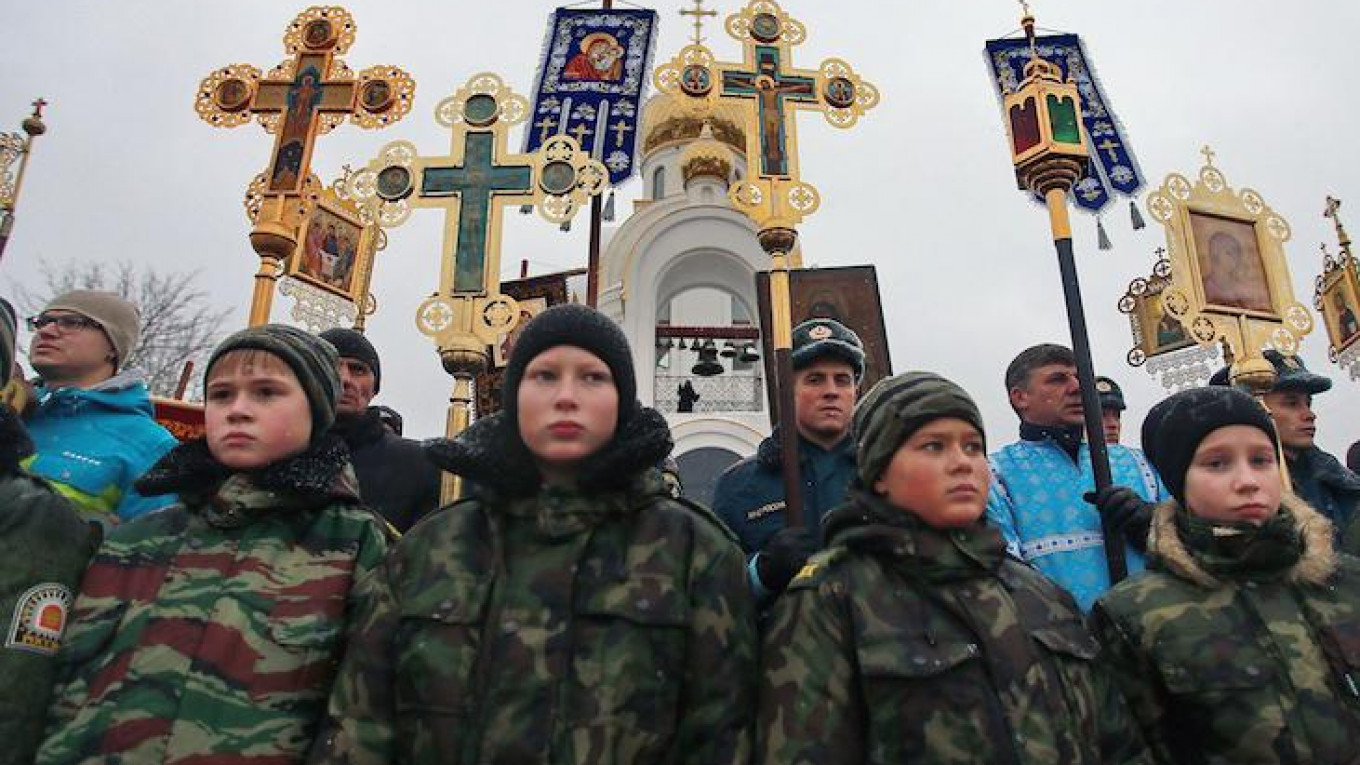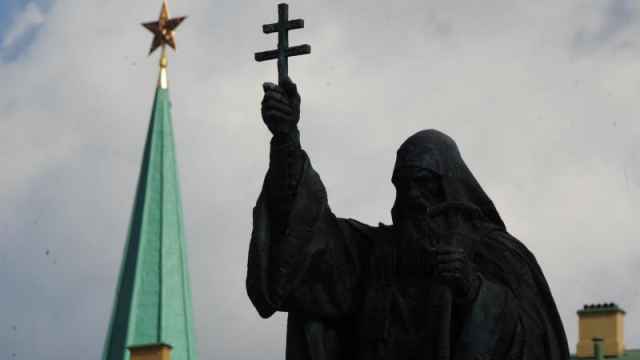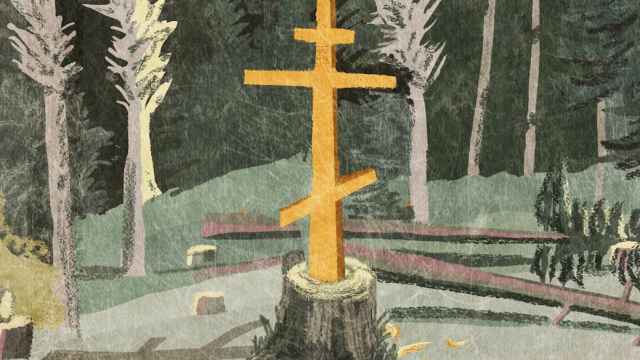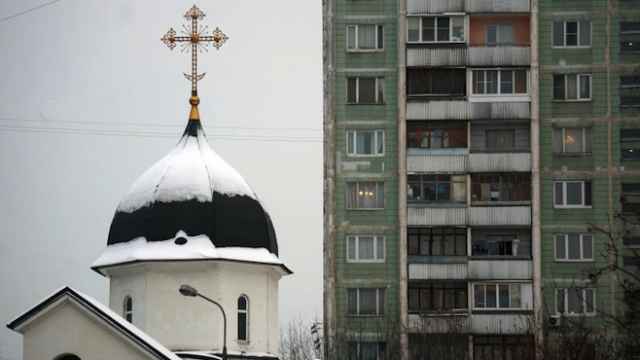Classes on Orthodox Christian culture could soon appear in the Russian curriculum, the Kommersant newspaper reported Tuesday.
Lessons on subjects such as "moral culture in the Orthodox family,” “the Christian warrior,” and “distorted Biblical texts used by sects,” would be held for Russian children in grades one to 11.
Fourteen-year-olds would be expected to describe different kinds of church bells, name the seven Ecumenical councils, and use the Orthodox calendar.
Russian children currently study "religious cultures and secular ethics" as part of the elementary school curriculum, as well as “the spiritual and moral culture of the peoples of Russia"
The proposal was put forward by members of Russia’s Federal Training and Methodological Association, the group tasked with forming the country’s curriculum. Thirty-six member have currently backed the plans, with voting set to continue until the end of the month.
A similar proposal was put forward earlier this year, but was ultimately rejected, Kommersant reported.
The Ministry of Education has not yet commented on the issue.
A Message from The Moscow Times:
Dear readers,
We are facing unprecedented challenges. Russia's Prosecutor General's Office has designated The Moscow Times as an "undesirable" organization, criminalizing our work and putting our staff at risk of prosecution. This follows our earlier unjust labeling as a "foreign agent."
These actions are direct attempts to silence independent journalism in Russia. The authorities claim our work "discredits the decisions of the Russian leadership." We see things differently: we strive to provide accurate, unbiased reporting on Russia.
We, the journalists of The Moscow Times, refuse to be silenced. But to continue our work, we need your help.
Your support, no matter how small, makes a world of difference. If you can, please support us monthly starting from just $2. It's quick to set up, and every contribution makes a significant impact.
By supporting The Moscow Times, you're defending open, independent journalism in the face of repression. Thank you for standing with us.
Remind me later.






